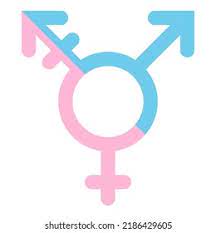In an age where gender norms are evolving and conversations about identity are becoming more open, some couples are exploring unconventional paths to strengthen their relationships. One such path involves hormone therapy, specifically when a wife encourages her husband to take female hormones. While it may seem unusual at first glance, this journey is rooted in deeper layers of understanding, empathy, and personal exploration. Let’s delve into this fascinating topic, uncovering the motivations, benefits, emotional impacts, and the stories of couples who have dared to tread this path.
1. The Surprising Journey of Hormone Therapy for Couples
Couples are often on a quest for deeper understanding and connection. In this quest, some may discover that hormone therapy can offer unexpected benefits. When a spouse suggests exploring hormone therapy, it can open up new avenues for intimacy and closeness. This journey is not just about physical changes; it also encompasses emotional growth, understanding, and a shared experience that can enhance the bond between partners.What Happens When A Woman Takes TestosteroneTranssexual Surgery Results
Hormone therapy, particularly when it involves transitioning to a more feminine hormonal profile, is a topic that is gaining traction. Couples are exploring the potential of this therapy not only as a way to address personal issues such as dysphoria but also as a tool for enriching their relationship. This surprising approach can foster discussions about identity, gender roles, and mutual support, paving the way for a stronger partnership.
2. Why One Wife Suggested Hormones for Her Husband
The motivations behind a wife suggesting her husband take female hormones can be as diverse as the couples themselves. Some wives may feel that their husbands struggle with gender identity and may want to support their exploration of femininity. In other cases, it could stem from a desire to enhance emotional connection or intimacy, as hormone therapy can lead to changes that may make partners feel closer to one another.
Additionally, some wives may have observed positive changes in their own well-being through hormone therapy and want to share that experience with their husbands. They might believe that the emotional benefits they experienced could also apply to their partners, fostering a greater understanding of each other’s feelings and identities. Ultimately, the suggestion can be a way of expressing love and support, encouraging each other to explore uncharted territories together.
3. Understanding Hormone Therapy: What to Know First
Before diving into the world of hormone therapy, it’s crucial to grasp the fundamentals. Hormone therapy generally involves the administration of hormones that align an individual’s physical characteristics with their gender identity. For men taking female hormones, this could mean medications like estrogen or progesterone, which can result in physical changes such as breast development or body fat redistribution.
It’s also important to highlight that hormone therapy is not a one-size-fits-all solution. Individuals may have different reactions, and the therapy can involve a range of dosages and types of hormones. Couples considering this path should prioritize thorough consultations with healthcare providers who specialize in hormone therapy to discuss potential outcomes, goals, and personalized plans tailored to their unique circumstances.
4. The Emotional Impact on Relationships and Identity
Hormone therapy can significantly alter how individuals perceive themselves and their relationships. For many couples, embarking on this journey can lead to profound emotional revelations. It can challenge established norms within the relationship and encourage both partners to explore their identities more deeply. This exploration can foster open dialogues about feelings, desires, and insecurities, ultimately leading to a more honest and accepting relationship.
On the flip side, the emotional journey can be complex, as changes in hormone levels can affect mood and behavior. One partner may experience heightened emotions or mood swings, which can challenge the dynamic of the relationship. It’s essential for couples to communicate openly about these changes, supporting each other through the ups and downs, and reinforcing their commitment to understanding the evolving identity of each partner.
5. What Are the Benefits of Taking Female Hormones?
Taking female hormones can offer several benefits beyond physical changes. Many individuals report experiencing improved emotional well-being, including reduced anxiety and enhanced feelings of happiness and contentment. These emotional shifts can positively influence relationships, as partners become more attuned to each other’s feelings and needs.
Physical benefits also play a significant role. For some, taking female hormones may promote softer skin, changes in body fat distribution, and the development of breasts, which can align with their gender identity. These changes can lead to increased confidence and self-acceptance, not just for the individual but also for their partner, who may find joy in their spouse’s transformation.
6. Navigating the Social Stigma Around Hormone Therapy
Despite the growing acceptance of diverse gender identities, hormone therapy still encounters social stigma. Couples navigating this journey may face judgment or misunderstanding from friends, family, or society at large. This stigma can create feelings of isolation or fear, but addressing these concerns openly can help strengthen the bond between partners.
Navigating this social landscape requires resilience and a strong support system. Many couples find solace in online communities where they can share experiences and connect with others who understand their journey. By fostering conversations about their choices, couples can challenge stereotypes and contribute to a broader acceptance of diverse paths in relationship dynamics.
7. Health Risks and Considerations You Shouldn’t Ignore
While hormone therapy can offer numerous benefits, it is crucial to recognize that it also comes with potential health risks. Individuals may experience side effects ranging from mild to severe, including mood changes, blood clotting risks, or changes in libido. Understanding these risks is essential for making informed decisions about hormone therapy.
Couples should engage in comprehensive discussions with healthcare professionals about the potential long-term implications of hormone therapy. Regular check-ups and monitoring can help mitigate risks and ensure that both partners remain healthy throughout the journey. Open communication about any discomfort or health concerns is vital for navigating this path together.
8. Real Couples Share Their Experiences with Hormone Changes
Many couples have shared their experiences with hormone therapy, showcasing the diversity of journeys taken. One couple recounted how taking female hormones together helped them redefine their relationship and shed traditional gender roles. They found that the experience not only deepened their emotional connection but also allowed them to explore new ways of expressing love and intimacy.
Another couple described the challenges they faced, emphasizing the importance of patience and understanding. As one partner navigated the changes brought on by hormone therapy, the other learned to offer support without judgment, which ultimately strengthened their bond. These real-life stories highlight that while hormone therapy can lead to profound transformations, the journey is as significant as the destination, reinforcing the importance of love and companionship in navigating change.
Exploring hormone therapy within a relationship can be a profound journey of discovery and growth. While it comes with its challenges, the potential benefits—emotionally and physically—can strengthen the bond between partners in unexpected ways. Through open communication, mutual support, and a willingness to explore the unknown, couples can navigate this transformative path together, enriching their relationships and understanding of each other in the process. As society becomes more accepting of diverse identities and experiences, stories like these remind us of the power of love, empathy, and shared journeys in navigating the complexities of life.


